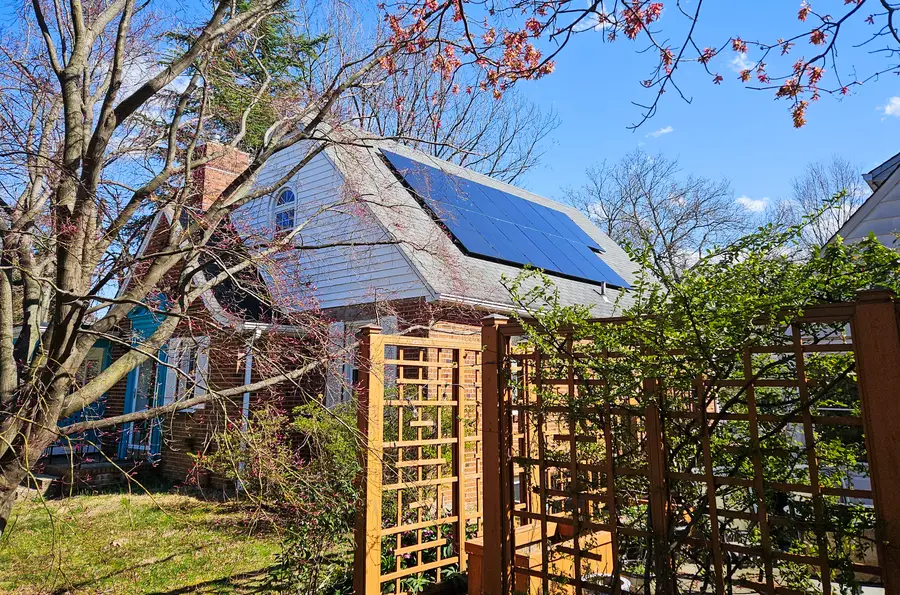Advancing Global Energy Access Through Sustainable Solutions
Miguel Franco is an off-grid energy expert working to improve access to clean energy across the world.
Miguel Franco is an off-grid energy expert working to improve access to clean energy across the world.
From a young age, Miguel Franco recognized how precious energy is.
Growing up in the Dominican Republic, he experienced constant power outages that continue to affect the country decades later. In his parents’ home in the capital city of Santo Domingo, “electricity goes out frequently,” he said. “You either need an inverter or solar panels—if you can afford it—or a generator. Otherwise, you don’t have electricity or water.”
Electricity in the Dominican Republic is also expensive—twice as costly for Franco’s parents as it is for him in the U.S. despite the frequent outages—making it even more important to conserve energy when it is available.
Franco’s experience is common in low-resource countries across the world and has motivated him to improve energy access for communities worldwide, ensuring a more sustainable and equitable future.
Franco did not plan for a career in international development—his first love was chemistry. “It was very logical, very reasonable; it was love at first sight.” But after completing his bachelor’s degree in chemical engineering from Universidad Nacional Pedro Henriquez Urena in the Dominican Republic and working as a chemical engineer for four years, Franco became aware of the negative environmental impacts that engineering solutions can have, particularly related to water use and pollution.
This, combined with his own experiences with unreliable access to electricity and water, sparked his interest in clean, sustainable engineering efforts and motivated him to move to the United States to pursue a master’s degree in environmental engineering and chemistry at Johns Hopkins University.
After completing his master’s, Franco began working for a USAID implementing partner involved in environmental, climate change, and resource management projects in Latin America. While in Mexico for his first ever work-related trip, he was soon introduced to his second love: travel. “I was able to implement what I had studied and work on what I really like, and I also got to travel. I was able to look at different cultures, different industries, different ways of doing things, all over the world,” he said. From Latin America, he moved to implement projects in South East Asia, focusing on renewable energy, in particular bioenergy and its impact to climate change.
These international experiences working on expanding off-grid energy access eventually led him to lead the USAID-funded Power Africa Off-Grid project. Launched in 2013, Power Africa is an ambitious United States Government-led partnership that brings together the collective resources of over 170 public and private sector partners to double access to electricity in sub-Saharan Africa.
Franco lived in South Africa for five years and eventually joined RTI in 2018 as Power Africa Off-Grid's chief of party, implementing the project across 26 countries. Because rural areas are often not connected to existing power grids, the project focused on off-grid technologies, particularly solar. By the time the project closed in 2023, the team had far surpassed their goal, electrifying over 7.2 million homes and leveraging $1.2 billion in investment capital for off-grid energy.
This success has catalyzed the growth of a new, comprehensive perspective in the off-grid energy sector that recognizes the importance of economic growth in providing sustainable access to energy.
“Without the revenue component, it doesn’t matter how much you want people to have electricity if they don’t have the money to pay for it. The economic growth component allows people not only to pay for the electricity, but also to pay for education, health, water and for any other service that is necessary for that community to grow,” said Franco. “Practitioners [in the off-grid energy sector] are being more holistic in the way they look at this and are not as siloed as before, which is something that RTI started with the Power Africa Off-Grid project.”

Franco's home is equipped with solar panels.
After moving back to the United States, despite once again having seemingly unlimited access to stable, affordable energy, Franco is still mindful of what he consumes.
“Just because you can be using energy doesn’t mean you should,” he said. “Coming from the Dominican Republic, where it is so expensive and you can’t waste it, I made my house here quite energy efficient and water efficient.”
Franco continues to use his lived experience, technical expertise, and leadership experience to support smaller clean energy, climate change, and economic growth programs across the world. He reflected on recently returning from a trip to Mexico 27 years after his first visit, which he credits with starting his international development career. “That’s what started the bug of ‘Let’s go work outside. Let’s go travel and do what I know and what I like.’ And that has never stopped.”